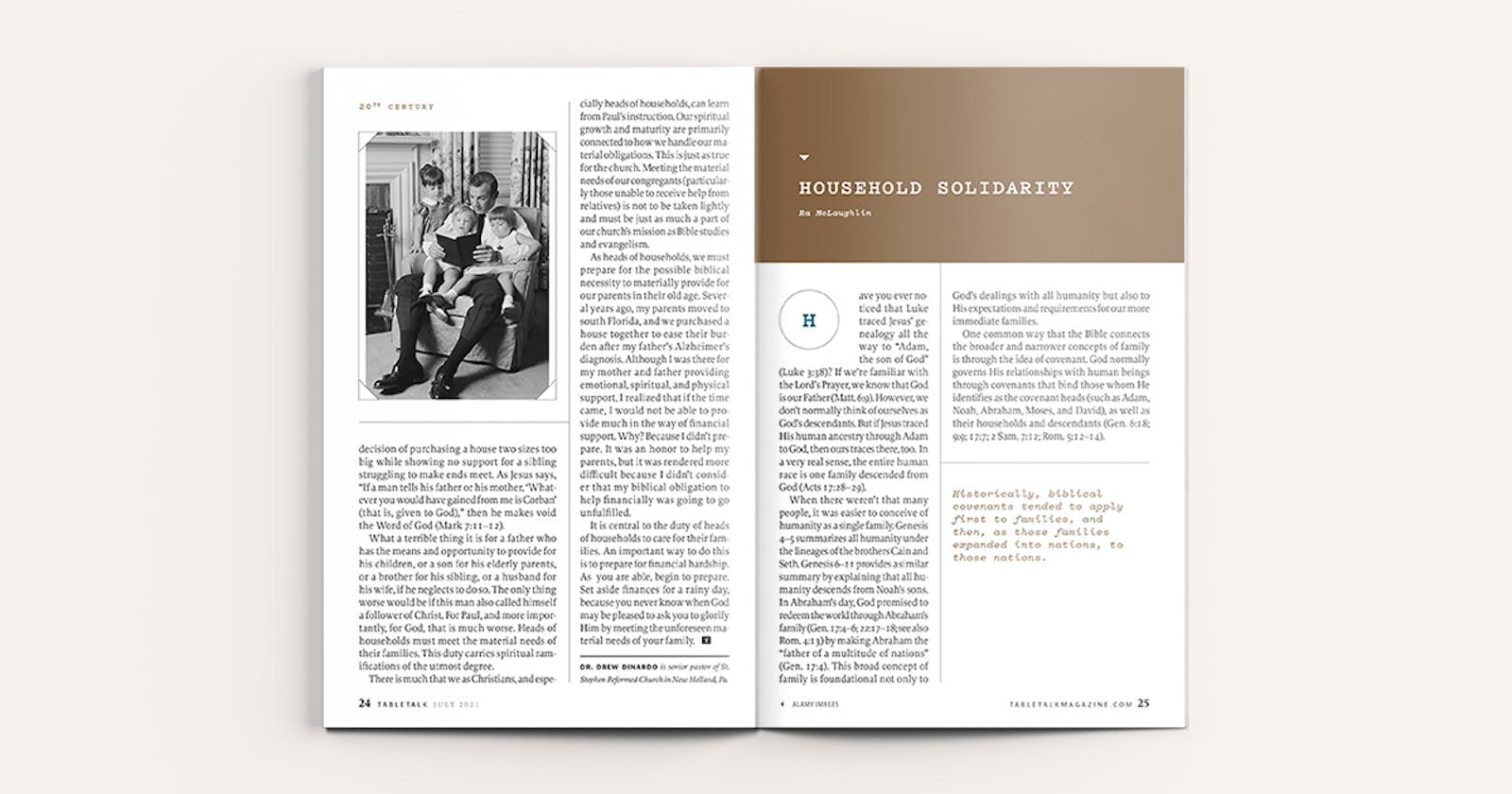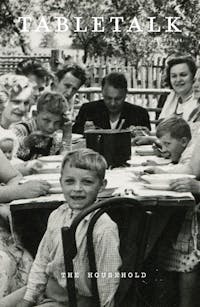
Request your free, three-month trial to Tabletalk magazine. You’ll receive the print issue monthly and gain immediate digital access to decades of archives. This trial is risk-free. No credit card required.
Try Tabletalk NowAlready receive Tabletalk magazine every month?
Verify your email address to gain unlimited access.
Have you ever noticed that Luke traced Jesus’ genealogy all the way to “Adam, the son of God” (Luke 3:38)? If we’re familiar with the Lord’s Prayer, we know that God is our Father (Matt. 6:9). However, we don’t normally think of ourselves as God’s descendants. But if Jesus traced His human ancestry through Adam to God, then ours traces there, too. In a very real sense, the entire human race is one family descended from God (Acts 17:28–29).
When there weren’t that many people, it was easier to conceive of humanity as a single family. Genesis 4–5 summarizes all humanity under the lineages of the brothers Cain and Seth. Genesis 6–11 provides a similar summary by explaining that all humanity descends from Noah’s sons. In Abraham’s day, God promised to redeem the world through Abraham’s family (Gen. 17:4–6; 22:17–18; see also Rom. 4:13) by making Abraham the “father of a multitude of nations” (Gen. 17:4). This broad concept of family is foundational not only to God’s dealings with all humanity but also to His expectations and requirements for our more immediate families.
One common way that the Bible connects the broader and narrower concepts of family is through the idea of covenant. God normally governs His relationships with human beings through covenants that bind those whom He identifies as the covenant heads (such as Adam, Noah, Abraham, Moses, and David), as well as their households and descendants (Gen. 6:18; 9:9; 17:7; 2 Sam. 7:12; Rom. 5:12–14).
Historically, biblical covenants tended to apply first to families and then, as those families expanded into nations, to those nations. So, the family and household applications of these covenants are explicit in their foundational language and context. This was even true of the Mosaic covenant, which God made with “the house of Jacob” and literally the “sons” of Israel (Ex. 19:3). These names emphasized family over nationhood, perhaps because, as escapees from Egypt, Israel wasn’t yet a recognized nation.
God often deals with His entire covenant people as a unified whole, often based on their actions as a whole or on those of a representative few. He rescued His entire covenant people (only eight people) from the flood in Noah’s day because Noah found favor (Gen. 6:8), just as He rescued all Israel from Egypt when His people cried out (Ex. 2:23–25). He punished Israel for Achan’s sin because He treated Achan as representing the nation (Josh. 7:1; 22:20).
God also deals with households as a unified whole. When He identified Isaac as Abraham’s covenant heir (Gen. 17), He required every male in the household to be circumcised (including Ishmael, whom He rejected as Abraham’s heir). During Israel’s rescue from Egypt, each household’s Passover observance saved its firstborn from death (Ex. 12). When Achan was found out, Israel restored their standing with God by destroying his entire household (Josh. 7:24–26).

Both the larger orientation to the entire covenant community and the narrower attention to households are continued in the New Testament. For instance, Peter told Israel that forgiveness of sins and the gift of the Holy Spirit were promised to “you and your children” (Acts 2:38–39). This confirmed that the Old Testament promises were being fulfilled in the New and assured Israel that children still inherited covenant status and promises based on their familial relationships. Later, Peter and other Apostles taught that the same was true for gentile households because gentiles were part of the same covenant (Acts 10:44–46; 11:12–18; Rom. 1:13–18).
Similarly, in 1 Corinthians 7:12–14, Paul taught that if a believer is married to an unbeliever, then the unbelieving spouse and their children are “holy” (often translated “sanctified”). That is, they’re in a covenant relationship with God (Ex. 19:6; Deut. 7:6; 14:2; 28:9; 1 Peter 2:9) and fit to participate in the life of the covenant community. This can be redemptive sanctification that leads to salvation (1 Cor. 7:16; 1 Peter 3:1–2) or grounds for condemnation if they reject the gospel (Heb. 10:29; 1 Peter 4:17). Either way, it’s a reality they face because they’re part of a covenant household.
As Christians, our obedience to God’s covenant always affects those around us, especially those in our households. This can be a wonderful blessing (Isa. 65:23) or a painful source of suffering (Ex. 20:5). Either way, it’s a compelling reason for us to live in faithful obedience to God. After all, we want to be the reason God blesses those we love and spares them from harm.
